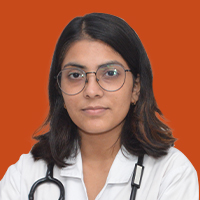

Successful Treatments
Clinics
Doctors
What is Phlebitis (Superficial Thrombophlebitis)?
Phlebitis (Superficial Thrombophlebitis) happens when a vein just below your skin gets inflamed from a blood clot. This could happen in areas of your body like your arms or legs. A vein that's inflamed might be red, painful, swollen, or warm to the touch.
This condition sounds scary but is usually not dangerous. However, it can be very uncomfortable. Several things can raise your risk for Phlebitis. They include being inactive for an extended period (such as during a long flight or bed rest), having varicose veins, or following a medical procedure involving veins (for example getting an IV).
It’s important to recognise the signs early. In case you see any of these symptoms, consult a certified Ayurveda doctor, who can offer you effective treatment to reduce the swelling and control pain. Superficial Thrombophlebitis generally resolves by itself, though expert advice can help speed up the recovery and make you feel better soon.
Common Causes of Phlebitis
This inflammation caused by Phlebitis is usually painful, red and also causes swelling.
Knowing what triggers this condition can help you prevent it or get early treatment.
The common causes of Phlebitis are:
Prolonged Inactivity: Sitting or lying down for prolonged periods of time, for instance on long flights or during lengthy sleep rest, could impede blood circulation and increase the danger of clots.
Varicose Veins: These are swollen, twisted veins under the skin. Blood flow is already impaired in individuals with varicose veins, therefore raising the risk for Phlebitis.
Intravenous (IV) Catheters: The inserting of an IV catheter can irritate the vein causing inflammation and clot formation.
Surgery: Surgical procedures, especially those involving the legs can increase the risk of developing blood clots because mobility is often limited during recovery.
Trauma or Injury: Direct blow or bruise to a vein can cause inflammation and clotting.
Cancer: Several cancers make your blood more prone to clot, causing Phlebitis.
Pregnancy: The pelvic and iliac veins become more constricted with pregnancy, causing vein problems.
Smoking: Smoking impedes blood circulation and raises the risk of clots and Phlebitis.
Signs and Symptoms of Phlebitis
Understanding the symptoms of Phlebitis might help you receive quick medical treatment and care. The key signs and symptoms to look for are:
Symptoms
Redness
The skin over the affected vein usually becomes red. This is one of the very first signs you might see.
Swelling
The area around the affected vein may swell and feel puffy to the touch.
Pain
You may feel pain along the vein course. This pain may become more intense if you press on the vein or move.
Warm skin
The skin covering the inflamed vein may feel warm or hot relative to nearby areas.
Tenderness
The area may be very tender and it may hurt to touch or apply pressure.
Hardening of the Vein
Eventually, the afflicted vein may feel hard or cord-like when you touch it.
Skin Darkening
The skin over the vein may darken with continued inflammation over time.
Fever
Even though less common, some people also experience a mild fever if the area is very inflamed.
Do you have any of the following symptoms?
- Redness along the vein
- Swelling around the vein
- Pain that worsens with pressure on the affected area
- Warmth over the affected vein
- Tenderness when touching the affected area
- Hardening of the vein, feeling like a cord under the skin
- Darkening of the skin over the vein
- Mild fever or increased temperature
Jiva Ayunique™ Treatment Philosophy - A Holistic Approach to Phlebitis
Jiva Ayurveda offers holistic Ayurvedic treatment of Phlebitis (Superficial Thrombophlebitis) by combining time-tested Ayurvedic therapies with advanced ayur-science medicines and counselling by top Ayurveda physicians to achieve the desired results. All ayurvedic treatments at Jiva are highly customised, varying from patient to patient, targetting the underlying root causes of the condition, and instead of just treating symptoms, they focus on holistic healing, balance and stability in totality.
Core Principles of the Jiva Ayunique™ Treatment Protocol
Customised Ayurvedic Medicines: Custom-made herbal medicines designed to balance the doshas and improve mood stability.
Yoga, Meditation, and Mental Wellness: Activities aimed at improving relaxation and mental health.
Ayurvedic Treatments: Techniques like Panchakarma and massages help detoxify the body and calm the mind and emotions.
Diet and Lifestyle Advice: Personalised guidance on diet and lifestyle changes to optimise health outcomes.
Ayurvedic Medicines for Phlebitis
The traditional Indian system of medicine, Ayurveda, offers several herbal remedies to manage this condition by decreasing inflammation and encouraging better blood circulation.
Following are some commonly noted Ayurvedic medicinal herbs used during the treatment of Phlebitis.
Guggulu: This resin exhibits anti-inflammatory and antioxidant properties and helps reduce swelling and improve blood circulation.
Triphala: Triphala, consisting of three fruits, helps digestion and circulation thereby ensuring good vein health.
Arjuna: Arjuna strengthens blood vessels and improves circulation.
Ashwagandha: This adaptogenic herb eases stress and inflammation to support body healing processes.
Brahmi: Traditionally used to promote blood circulation, Brahmi can also help with Phlebitis symptoms.
FAQs
Sudden triggers can be a recent surgery, prolonged sitting during travel or a medical procedure involving veins such as IV insertion.
Yes, gentle walking enhances circulation and can prevent additional clotting, which might help with superficial Thrombophlebitis.
Yes, many cases resolve without intensive treatment in 1-2 weeks but the vein may remain hard for a longer period of time.
No, it does not cause a heart attack directly since it is only related to the superficial veins and not related to heart conditions.
Cooling & anti-inflammatory food is recommended in Ayurveda for Phlebitis, including leafy green vegetables, berries and spices like turmeric and ginger.
Ayurveda considers it an imbalance in Pitta dosha (metabolism and inflammation) and Vata (movement and circulation).
Certain yoga poses that help increase circulation are helpful, but poses should not be too aggressive or push the affected areas.
A cool compress or coconut oil can provide immediate mild relief from Phlebitis pain and swelling.
While Ayurveda can help control symptoms and underlying imbalances, lifestyle and dietary changes are imperative to avoid recurrence.
No, it is not contagious. It's a vascular condition brought on by blood clots and doesn't spread from person to person.
Top Ayurveda Doctors
Our Happy Patients
Home Remedies
- रूखे और बेजान बालों का आयुर्वेदिक इलाज और मुफ़्त परामर्श
- पिगमेंटेशन का इलाज - घरेलू नुस्खे और मुफ़्त परामर्श
- फंगल इंफेक्शन का इलाज - घरेलू नुस्खे और मुफ़्त परामर्श
- चेहरे की टैनिंग हटाने के घरेलू उपाय - मुफ़्त परामर्श
- Scalp की खुजली का आयुर्वेदिक इलाज - मुफ़्त परामर्श
- क्या आपकी त्वचा बेजान हो गई है? ये आयुर्वेदिक नुस्खे देंगे नैचुरल ग्लो
- झड़ते बालों से परेशान? ये आयुर्वेदिक नुस्खे देंगे घने और मजबूत बाल
- पिंपल्स से छुटकारा पाना मुश्किल लग रहा है? आज़माएं ये असरदार घरेलू नुस्खे!
- क्या आप जानते हैं? इन देसी नुस्खों से डार्क सर्कल्स गायब हो सकते हैं
- डैंड्रफ का जड़ से इलाज – घर पर आजमाएं ये आसान नुस्खे
- Home Remedies for Open Pores
- Home Remedies for Glowing Skin
- Home Remedies For Itchy Scalp
- Home Remedies for Hair Fall
- Home Remedies for Dry Hair
- Home Remedies for Black Spots on Face
- Home Remedies for Hair Loss
- Home Remedies for Pigmentation
- Home Remedies for Face Tan
- Home Remedies for Fungal Infections
- Home Remedies for Dandruff
- Home Remedies for Pimples
- Home Remedies for Dark Circles
Related Disease
- Ayurvedic Treatment for Vitiligo
- Ayurvedic Treatment for Urticaria Hives
- Psoriasis
- Ayurvedic Treatment for Hair loss and Regrowth
- Ayurvedic Treatment for Skin allergy
- Ayurvedic Treatment For Dandruff
- Ayurvedic Treatment for ringworm
- Ayurvedic Treatment for Eczema
- Ayurvedic Treatment for Psoriasis
- Ayurvedic Treatment for Acanthosis Nigricans
- Ayurvedic Treatment for Alopecia Areata
- Ayurvedic Treatment for Chicken Pox
- Ayurvedic Treatment for Folliculitis
- Ayurvedic Treatment for Athlete’s Foot
- Ayurvedic Treatment for Pityriasis Rosea
- Ayurvedic Treatment for Pemphigus Vulgaris
- Ayurvedic Treatment for Phlebitis
- Ayurvedic Treatment for Angioedema
- Get Ayurvedic Treatment For Impetigo
- Lichen Planus Treatment in Ayurveda
- Ayurvedic Treatment for Carbuncle
- Ayurvedic Treatment for Cellulitis
- Ayurvedic Treatment for Shingles
- Ayurvedic Treatment for Seborrheic Dermatitis
- Ayurvedic Treatment for Atopic Dermatitis
- Ayurvedic Treatment for Dermatitis
- Get Ayurvedic Treatment for Lipoma
- Ayurvedic Treatment for Keloids
- Ayurvedic Treatment For Xanthelasma
- Ayurvedic Treatment for Scabis
- Ayurvedic Treatment For Warts
- Ayurvedic Treatment For Dark Circles
- Ayurvedic Treatment For Hyperpigmentation
- Ayurvedic Treatment for Glowing Skin
- Ayurvedic Treatment For Fungal Infection
- Get Ayurvedic Treatment for Rosacea
- Get Ayurvedic Treatment for Contact Dermatitis
- Ayurvedic Treatment for Acne
- Ayurvedic Treatment for Leprosy
Latest Blogs
- From Grief to Healing: How a 75-Year-Old Found Relief from Osteoarthritis and BP Issues in Just 7 Days
- Surgery के बाद कमज़ोरी, Dopamine कम और Immunity गिर गई थी—Ayurveda ने कैसे फिर से ताकत दी
- 85 से 115 KG तक अचानक बढ़ा वज़न—Thyroid, Fatty Liver और Kidney Stone में Ayurveda ने कैसे संभाली हालत
- PCOD Success Story: जब दवाइयाँ काम न करें, Ayurveda दिखाता है असली रास्ता
- लंबे समय तक बैठकर काम करने से बढ़ा Lower Back Pain—10 दिन के Panchakarma ने कैसे दिया आराम
- सालों की Acidity, Gas और Joint Pain—Ayurveda ने 3 महीनों में कैसे दी राहत
- Knee Replacement से पहले रुकिए! Ayurveda ने कैसे रोका Operation और दिया प्राकृतिक राहत
- गंभीर Jaundice के बाद शुरू हुआ तेज़ Joint Pain—Ayurveda ने सिर्फ 4 महीनों में कैसे दी राहत
- Skin Allergy और Fungal Infection ने रातों की नींद छीन ली थी—Ayurveda ने कैसे दी गहरी राहत
- बार-बार होने वाली खाँसी, ज़ुकाम और साँस की दिक्कत—Ayurveda ने कैसे तोड़ी ये Chronic Cycle
- 10.6 से 6.2 तक की गिरावट—Ayurveda ने Diabetes Management में कैसे दिखाई ताकत
- Disk Bulge की वजह से चलना बंद हो गया था—Ayurveda ने कैसे दोबारा खड़ा होने की ताकत दी
- High Diabetes रिपोर्ट ने डरा दिया था—Ayurveda ने बिना आजीवन औषधियाँ के दिखाया नया रास्ता
- 65 की उम्र में भी नींद नहीं आती थी—जीवा आयुर्वेद की Video Consultation ने कैसे दी सुकूनभरी नींद
- Migraine ने पढ़ाई और काम दोनों रोक दिए थे—Personalised Ayurvedic Treatment ने कैसे बदली ज़िंदगी
- खड़े रहना मुश्किल, हाथ सुन्न, लगातार दर्द—Ayurveda ने कैसे बदली Arthritis की कहानी
- 28-Year-Old की Struggle: Skin Problems से लेकर Psoriasis Relief तक की Ayurvedic Journey
- 100 दिनों में Diabetes Reverse! Ayurveda ने कैसे 8.5 से 5.5 तक गिराया HbA1c
- सालों पुराने Knee Pain में Painkillers भी हार गए—Ayurveda ने कैसे दिलाया सच्चा आराम
- 74 साल की उम्र में भी Osteoporosis Pain से मिली राहत—Ayurveda ने कैसे बदली ज़िंदगी
Ayurvedic Doctor In Top Cities
- Ayurvedic Doctors in Bangalore
- Ayurvedic Doctors in Pune
- Ayurvedic Doctors in Delhi
- Ayurvedic Doctors in Hyderabad
- Ayurvedic Doctors in Indore
- Ayurvedic Doctors in Mumbai
- Ayurvedic Doctors in Lucknow
- Ayurvedic Doctors in Kolkata
- Ayurvedic Doctors in Patna
- Ayurvedic Doctors in Vadodara
- Ayurvedic Doctors in Ahmedabad
- Ayurvedic Doctors in Chandigarh
- Ayurvedic Doctors in Gurugaon
- Ayurvedic Doctors in Jaipur
- Ayurvedic Doctors in Kanpur
- Ayurvedic Doctors in Noida
- Ayurvedic Doctors in Ranchi
- Ayurvedic Doctors in Bhopal
- Ayurvedic Doctors in Ludhiana
- Ayurvedic Doctors in Dehradun









































